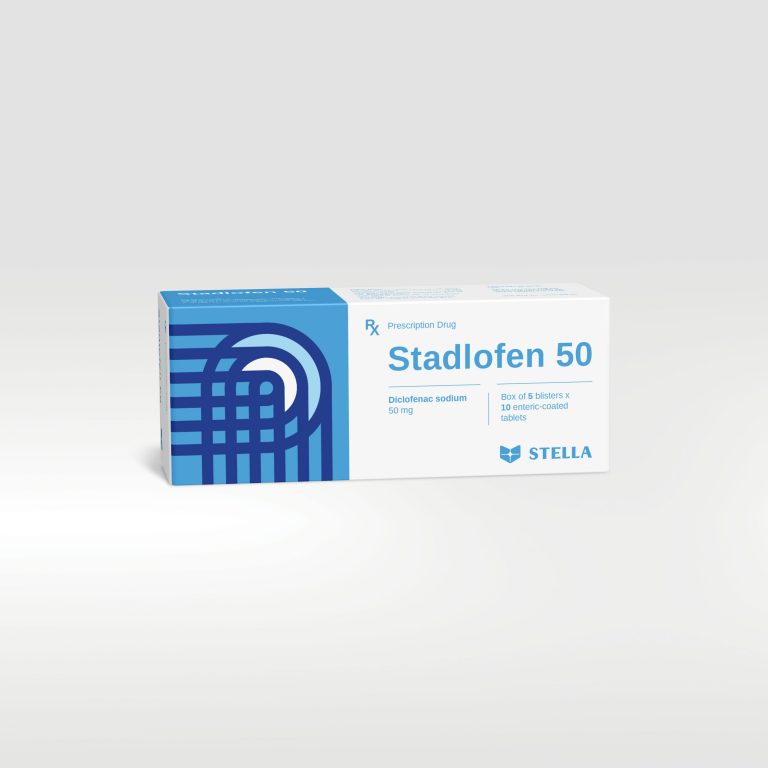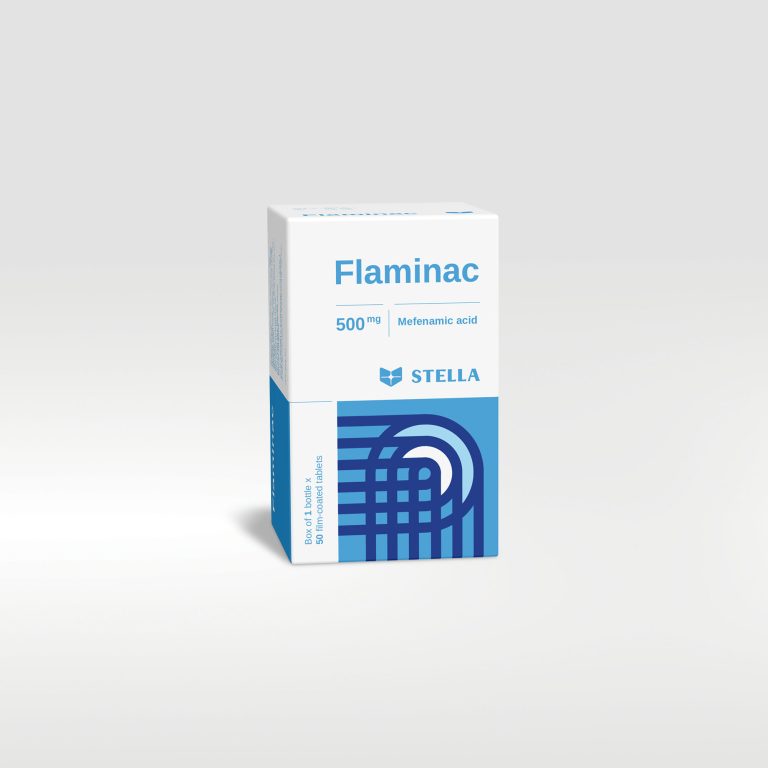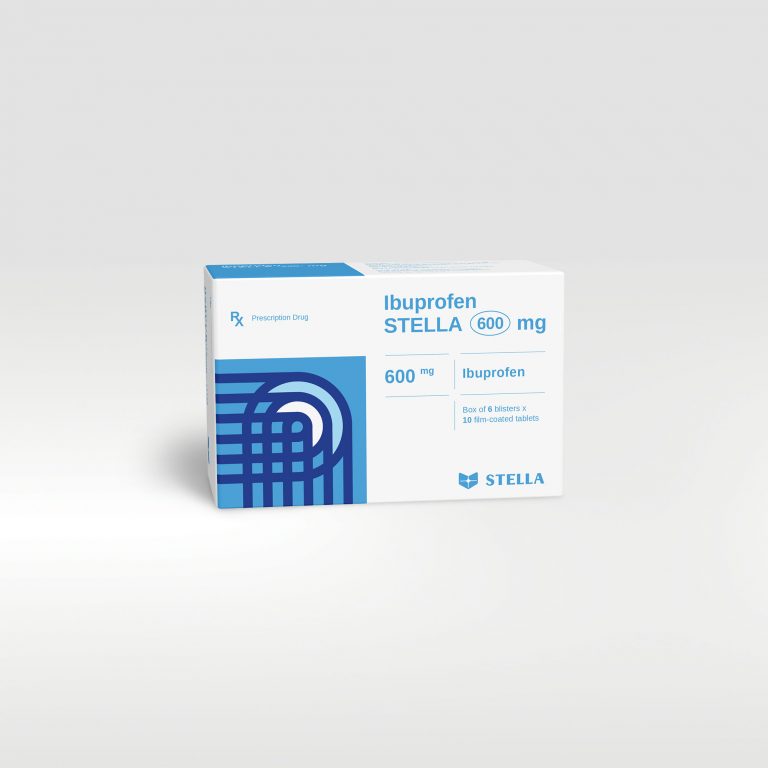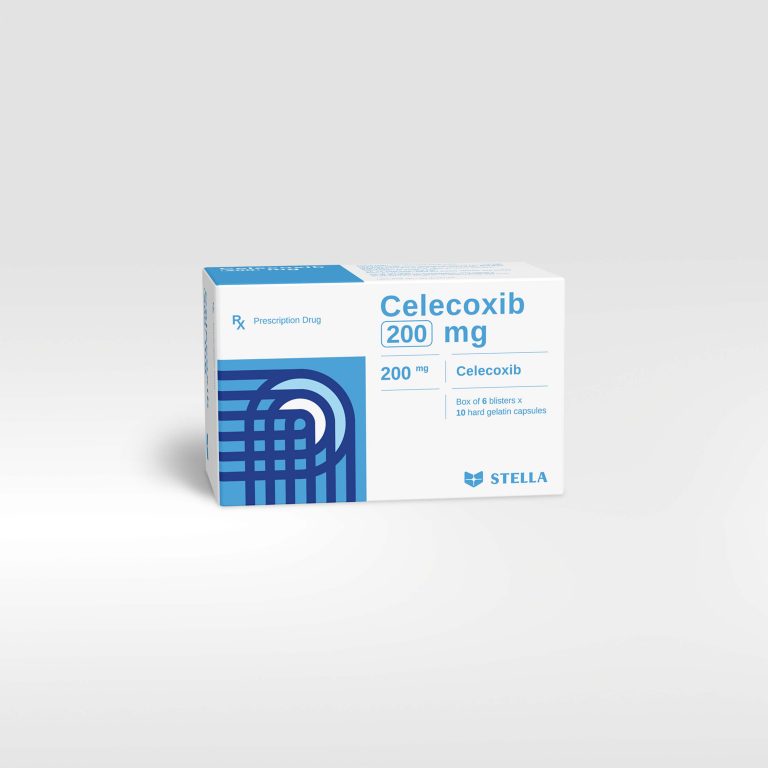Aceclofenac STELLA 100 mg Rx
Aceclofenac is a nonsteroidal agent with marked anti-inflammatory and analgesic properties.
| Pack size | Box of 50 tablets, 100 tablets. Bottle of 500 tablets |
| Shelf-life | 36 months |
| Composition | Aceclofenac |
| Dosage forms and strengths | Film-coated tablet: 100 mg |
Product code :














